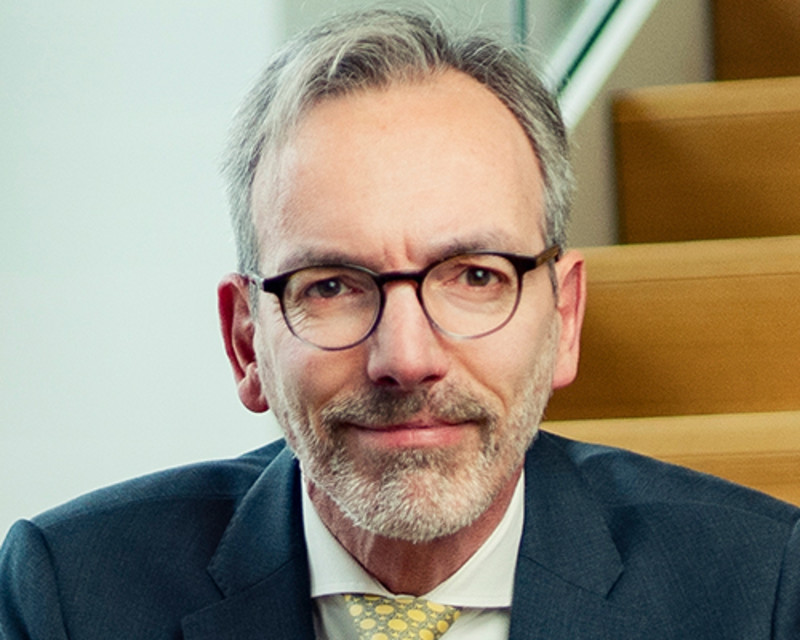

Be patient, EM fundamentals will pay off
After cutting his investment teeth in the emerging markets crises of the 1990s, Wim-Hein Pals, Robeco’s head of emerging markets, says EM economies are now much more stable, and valuations are very attractive.
概要
- Solid fundamentals and valuation discount mean EM will lead the next cycle
- Critical to focus on inflation risks to protect returns
- EM corporate governance concerns identical to DM, so discount is unjustified
A pivot towards emerging markets (EM) has been a high-profile investment theme in 2023 on expectations EM would outperform as the US Fed’s inflation fight reached completion, and US interest rates started to decline. That hasn’t happened, and the US market has rallied on the artificial intelligence theme in large-cap tech stocks, but the narrative of strong EM fundamentals is intact, says Wim-Hein Pals.
“We're very bullish on EM going forward the next couple of years with several tailwinds. In general, inflation levels in the emerging countries are way below developed markets, which gives them room to lower interest rates earlier than in developed markets,” he says.
Pals identifies China, where monetary easing was already underway, and Brazil as countries to lead the global easing cycle. Real interest rates are 8% in Brazil so there is significant room to ease policy, with other Latin American countries and Asian countries to follow. He says that huge foreign exchange reserves, trade surpluses, and prudent fiscal policies characterized almost all major emerging countries, highlighting Thailand, South Korea, Taiwan, and China, while corporate earnings had bottomed out and are now turning higher.
“Valuation is a no-brainer in these markets. EM is amazingly cheap from a historical perspective relative to developed markets. And also relative to interest rates, it's really, really undervalued.”
Pals’ expectation is that as soon as the Fed stops tightening, emerging markets will lead the next cycle with the factors that saw DM outperform in the previous decade now absent.
“Quantitative easing has stopped or is disappearing, real rates are becoming more normal, and you've got EM where the fundamentals are superior. The setup is very clear.”
EM corporate governance discount no longer makes sense
Another factor depressing EM valuations versus DM peers has been perceived corporate governance risk, but Pals says this is no longer justified.
“There’s a misconception that there is substantially more corporate governance risk in EM than in DM. I question that because there is the same sort of risks in both. Given where valuations are, I think there is substantially more governance risk in the US for an equity investor than say South Korea.”
Pals points to several recent high-profile corporate governance scandals in developed markets, including Wirecard and Credit Suisse.
“Don’t get me wrong: there are examples in China, India and elsewhere but you're paying 30% less for the same earnings as an equity investor in EM relative to DM,” he says.
He adds that Robeco’s focus on sustainable investment with a team of 50 dedicated analysts and engagement specialists is making stock selection in EM more sophisticated. “There is a huge focus on governance and transparency, on the quality of the books, and more and more on the environmental and social aspects,” he says.
How to approach Turkey
The solid EM fundamentals are not universal, with Turkey and Argentina both outliers with embedded high inflation and weak currencies.
“I always focus on inflation, which can ruin your returns as an equity investor. We've had several cases in the past and we currently have Turkey as the perfect example. You can say it’s the poster child of inflation getting out of hand and of policies that don't make sense, like lowering interest rates in an environment of ballooning inflation, as in the past four or five years.”
Pals says Turkey faces a huge adjustment as orthodox policymakers are brought in to help the economic situation through monetary tightening.
“That will bring back foreign trust and improve foreign sentiment towards Turkish assets and might increase foreign direct investment going into Turkey. The location is very interesting for a lot of multinational corporates and there's potential for massive investments from foreign multinational corporates,” he says.
獲取最新市場觀點
訂閱我們的電子報,時刻把握投資資訊和專家分析。
Lessons from the 1990s
Pals’ EM investment career started at Robeco in 1992 and during that decade he navigated the Mexican ‘tequila’ crisis in 1994, the Asian crisis in 1997 and the Russia crisis in 1998. He says he has learned to avoid a common mistake in EM investing; entering or re-entering a market too soon after a crisis to try and front-run a recovery.
“When is the end of the Turkey crisis? We don't know. That's what we learned in Thailand, in 1997 and 1998.”
Pals says that after correctly anticipating the Thai crisis and being short the Thai baht and long Thai exporters in early 1997, they had been able to take profit and then re-enter the market in late 1997 and early 1998, as surviving Thai bank equities plunged to fire-sale levels of 0.3x book value.
“There was continued negative newsflow and Thai banks fell further, so we bought more at 0.2x book value. But in the meantime, you lose and underperform.”
The investment eventually came good at the end of 1998 when banks recovered to 0.6x book value, “but you could have been much better off by waiting a little longer and letting the baht stabilize. It's probably better waiting a bit too long and losing a bit of the upside than being too early and going down another 20%, for instance,“ he says.
Be patient and watch the Fed
Overall Pals says the US Federal Reserve’s still hawkish stance is making potential EM investors wary of too much exposure, despite the historic valuation discount. “But if the Fed stops hiking rates, then the emerging central banks could start cutting rates. That could be the trigger for a longer-term outperformance of EM relative to DM. The interest rate bill of a lot of corporates is high, so earnings recovery will be in play too.”
Important information
The contents of this document have not been reviewed by the Securities and Futures Commission ("SFC") in Hong Kong. If you are in any doubt about any of the contents of this document, you should obtain independent professional advice. This document has been distributed by Robeco Hong Kong Limited (‘Robeco’). Robeco is regulated by the SFC in Hong Kong. This document has been prepared on a confidential basis solely for the recipient and is for information purposes only. Any reproduction or distribution of this documentation, in whole or in part, or the disclosure of its contents, without the prior written consent of Robeco, is prohibited. By accepting this documentation, the recipient agrees to the foregoing This document is intended to provide the reader with information on Robeco’s specific capabilities, but does not constitute a recommendation to buy or sell certain securities or investment products. Investment decisions should only be based on the relevant prospectus and on thorough financial, fiscal and legal advice. Please refer to the relevant offering documents for details including the risk factors before making any investment decisions. The contents of this document are based upon sources of information believed to be reliable. This document is not intended for distribution to or use by any person or entity in any jurisdiction or country where such distribution or use would be contrary to local law or regulation. Investment Involves risks. Historical returns are provided for illustrative purposes only and do not necessarily reflect Robeco’s expectations for the future. The value of your investments may fluctuate. Past performance is no indication of current or future performance.

























